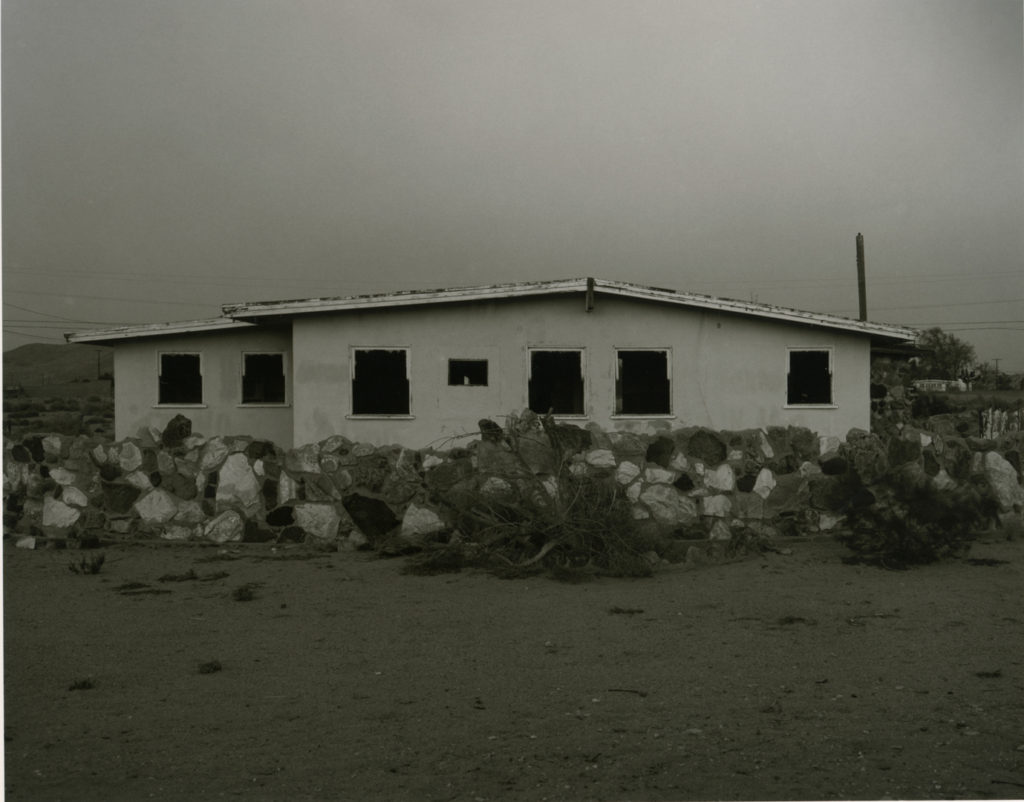“I am interested in revealing the narratives contained within the landscape and am most attracted to places where the land reveals itself as being both an agent of geological processes and a field of human endeavor. “ Mark Ruwedel is a Canadian photographer. Ruwedel received his Bachelor of Fine Arts from Kutztown State College, Kutztown, Pennsylvania in 1978, and went on to earn a Master of Fine Arts degree from Concordia University in Montreal, Québec in 1983. Initially Ruwedel wanted to be a painter. His journey into photography was gradual. While aware of Walker Evans in high school, he paid closer attention to his photographs as a painting student at Kutztown State College and purchased a copy of American Photographs when he graduated from there in the mid 1970s. In addition to his emerging interest in the work of Walker Evans, two other experiences influenced the shape of Ruwedel’s future practice. The first was viewing, as an undergraduate, the film, Spiral Jetty, Robert Smithson’s iconic 1970 land art piece. Ruwedel later described the film and Smithson’s entire body of work as having “…made a deep and lasting impression on me, influencing the way I think about such things as landscape, sculpture, and time…” The second experience was his encounter with the New Topographics. Although he already knew and admired Lewis Baltz and Robert Adams’s photographs, he had first heard the term New Topographics used in relation to his own work in graduate school in the early 1980s. The discovery of these deceptively empty-looking photographs was important to Ruwedel’s articulating what it was he wanted to say in his art work for two reasons: they made it clear that “the landscape was a suitable place for social inquisition” and it marked one of “…first instances of the kind of art photography that generated interest in the larger contemporary art world”. The desert has been a source of enduring interest to Mark Ruwedel who searches both its uninhabited spaces and its cluttered areas for evidence of human presence. In the series Crossings Ruwedel follows the paths of people who are either fugitives from justice and society, or illegal immigrants seeking better lives. This series shows the landscape littered with objects discarded by the travelers; empty water bottles, clothing, baby carriers, and other personal things. In Crossing #14 an abandoned Guatemalan passport lies on the ground in proximity to bits of plastic bags tangled in the dry brush. Mark Ruwedel has taught at the California State University in Long Beach, California; Concordia University in Montreal, Québec; and at the Nova Scotia College of Art and Design, Halifax, Nova Scotia.

